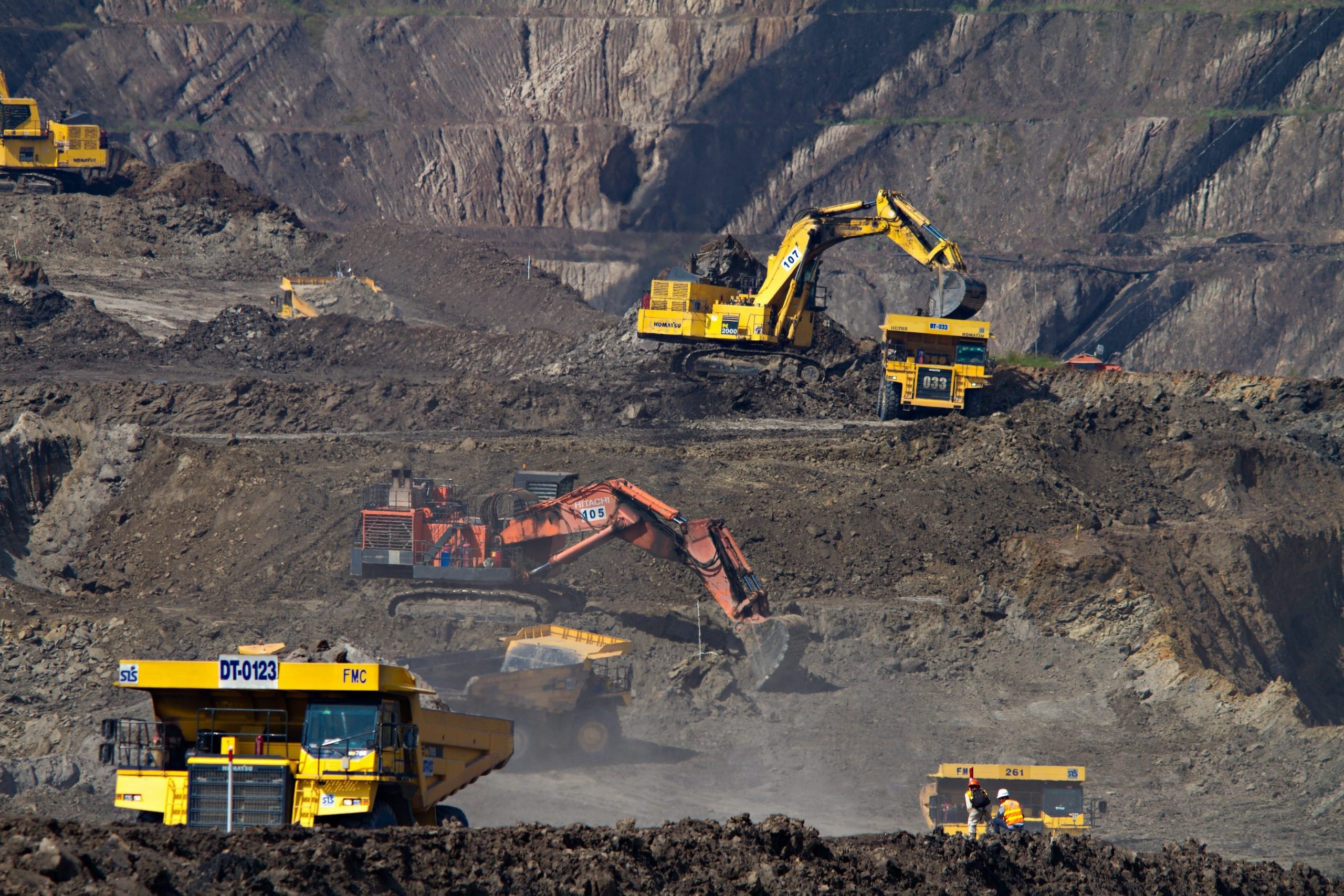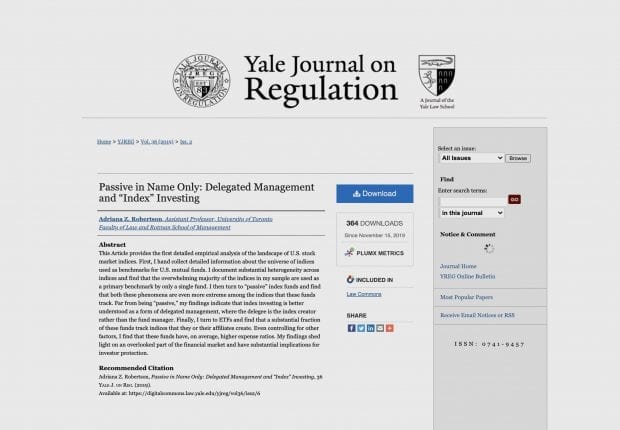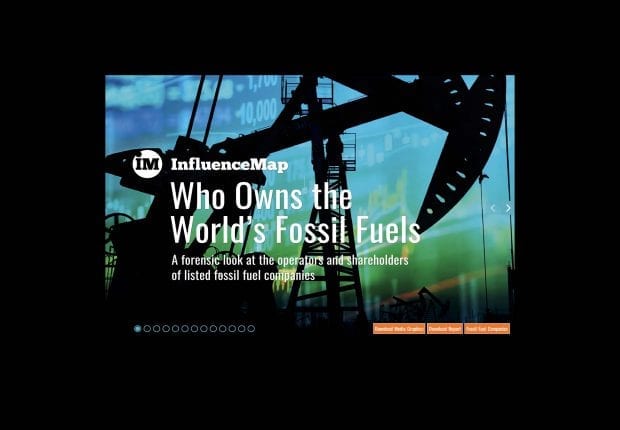Reports
Fossil fuel finance
Reports detailing financing of coal, oil, and gas with data and analysis as well as tools and recommendations for how investors should rapidly exit fossil fuel companies.
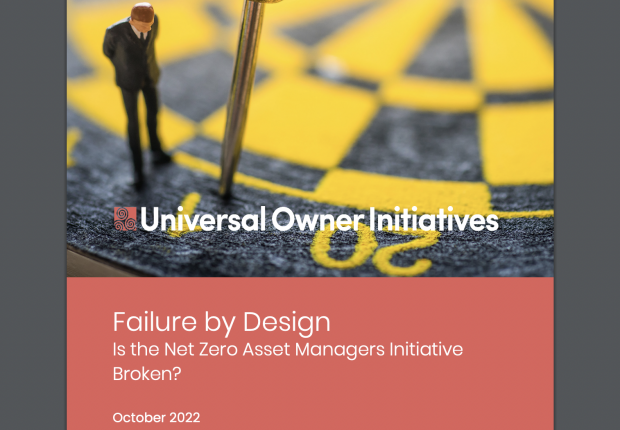
Failure by Design: Is the Net Zero Asset Managers Initiative Broken?
As things stand, the ‘net zero’ in NZAMI is a misnomer. Their headline ambition – a 15-26% cut in emissions by 2030 – is barely half of what is required for the world to stay on track with net zero. But once we take into account the initiative’s loopholes, we find that asset managers have on average made pledges that are consistent with aligning just a few percent of their emissions with net zero.
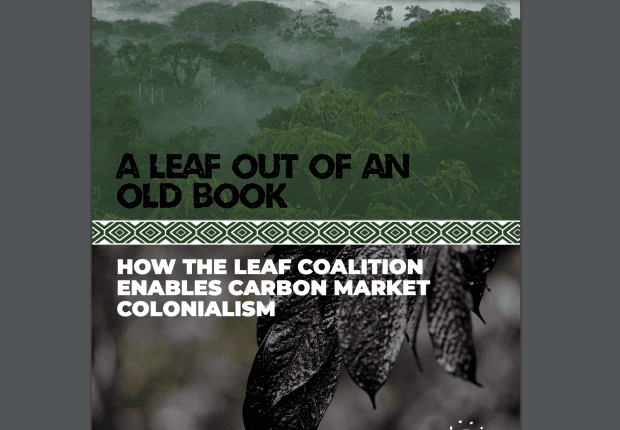
A Leaf Out of an Old Book: How the LEAF Coalition Enables Market Colonialism
Amazon Watch has serious concerns that the LEAF Coalition’s agreement with the Ecuadorian Ministry of the Environment is yet another example of carbon offset programs serving as a dangerous distraction from climate justice. Programs like the LEAF Coalition threaten to create a false “green” veneer over continued threats to Indigenous rights while enabling extractive industries and further commoditizing communities’ relationships with nature.
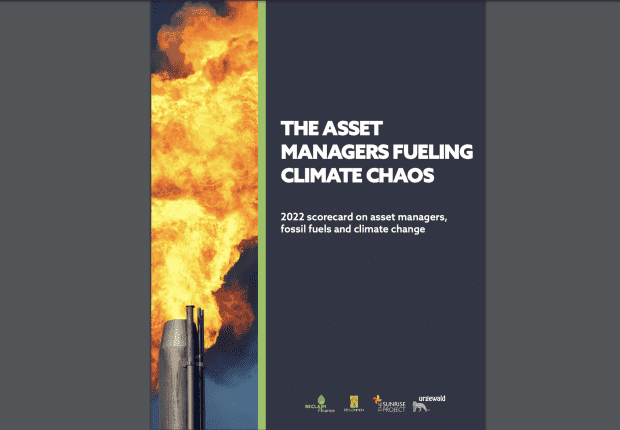
The Asset Managers Funding Climate Chaos: 2022 scorecard on asset managers, fossil fuels and climate change
More than seven years after the Paris Agreement was signed, our 2022 scorecard reveals that the biggest asset managers still have not taken appropriate steps to tackle fossil fuel expansion, a basic prerequisite to keeping global warming in check. While many acknowledge the need to organize a managed decline of the oil and gas industry, these firms are still investing billions into companies whose fossil fuel expansion plans make this objective impossible to achieve.
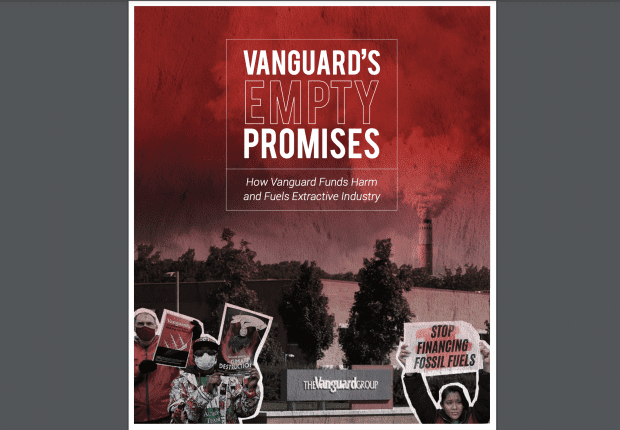
Vanguard’s Empty Promises: How Vanguard Funds Harm and Fuels Extractive Industry
This report (1) critiques Vanguard’s governance practices and charitable giving vehicles and (2) highlights how Vanguard’s loose definitions of social justice and inadequate screening tools allow capital to be deployed to extractive industries via funds touted as both environmentally and socially responsible. While frontline BIPOC communities have been demanding divestment from extractive industries for years, Vanguard’s investment vehicles remain financial drivers of harmful industry.
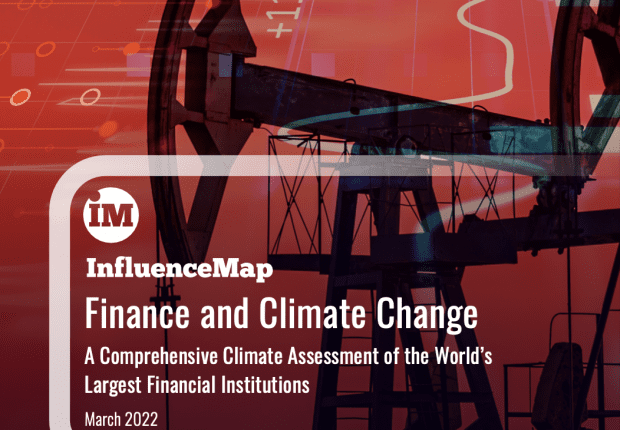
Finance and Climate Change
A comprehensive assessment of the world's 30 largest listed financial institutions shows a clear disconnect between the concrete short-term targets and actions needed to address the climate emergency and the limited, long-term targets currently being set by the financial sector. The research indicates a widespread lack of integration of high-level climate commitments into business segment processes.
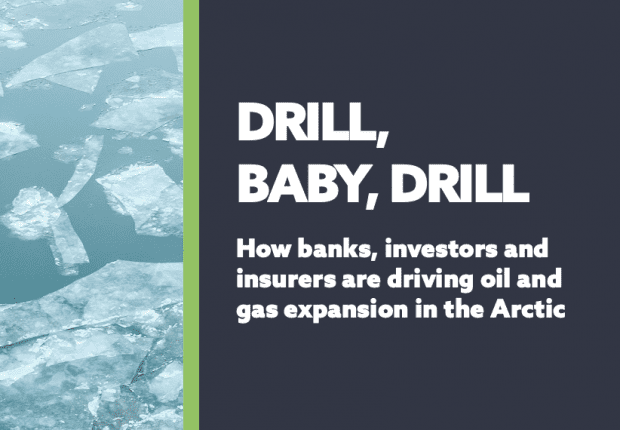
DRILL, BABY, DRILL: How banks, investors and insurers are driving oil and gas expansion in the Arctic
Our capacity to protect the Arctic is a litmus test for our capacity to protect
our planet and its ecosystems. Tragically, this report reveals that a toxic combination of fossils and finance is setting us on the path to failure.
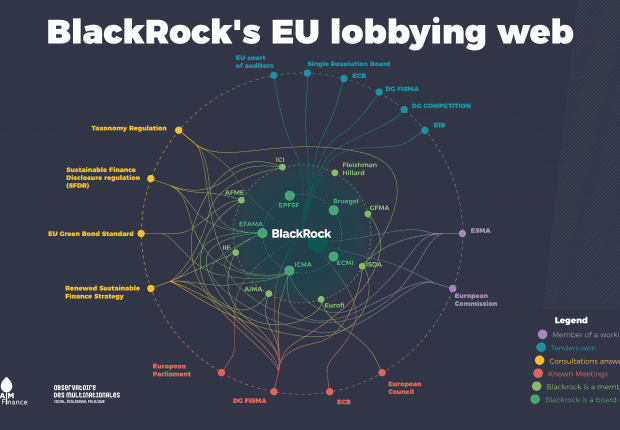
HIJACKED: Exposing BlackRock’s Grip on the EU’s Climate Finance Plans
Reclaim Finance and the Observatoire des multinationales have revealed the extent of BlackRock’s influence over the EU’s climate finance plans. The report, entitled “Hijacked: Exposing BlackRock’s Grip on the EU’s Climate Finance Plans”, finds that the world’s largest asset manager sits at the heart of a lobbying web with privileged access to European institutions. The report raises the alarm on the climate rulebook defended by BlackRock and friend groups. While opposing any kind of (even minimal) climate-related restrictions that would be imposed on financial players and their investment choices, the alternative they push forward is highly problematic.
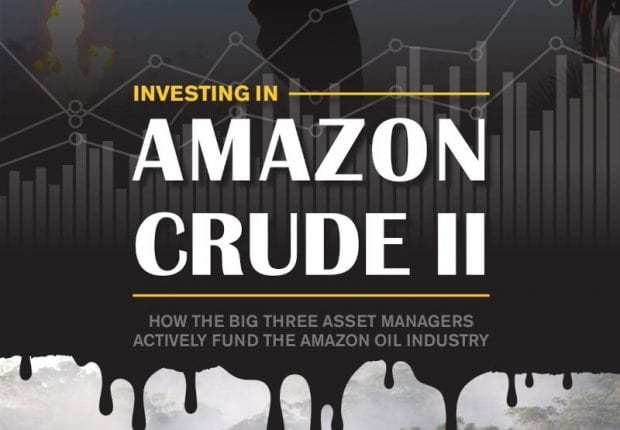
Investing in Amazon Crude II: How the Big Three Asset Managers Actively Fund the Amazon Oil Industry
Three of the world's largest asset managers – BlackRock, Vanguard, and State Street – with trillions of dollars under their control, invest in oil companies with horrific environmental and human rights records across the Amazon Basin.
Right now, these asset managers hold a large amount of risk by actively contributing to Indigenous and human rights abuses, forest destruction, biodiversity loss, and climate chaos. The "Big Three" can't claim to be climate champions while steering client money into oil drilling in the rainforest.
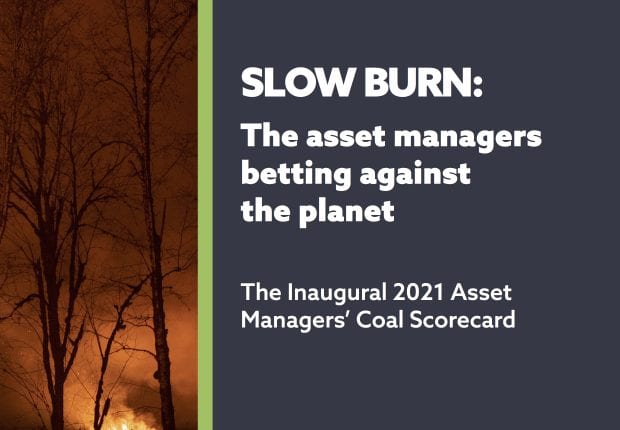
SLOW BURN: The asset managers betting against the planet
Reclaim Finance's new scorecard on leading asset managers’ climate commitments, focusing on their approach to the coal sector. Produced with four partner NGOs from across Europe and North America, the report compares 29 asset managers, with a focus on the European market. The authors reveal that despite 16 asset managers holding long-term climate commitments, nearly all are failing to take the first step to making them a reality: exiting coal.
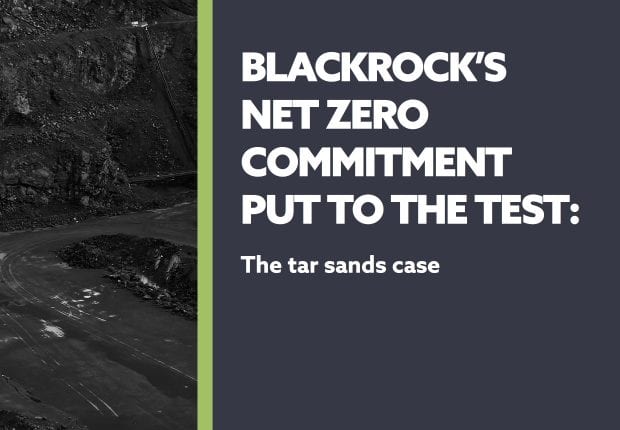
BlackRock’s Net-Zero Commitment Put To The Test
A new report from Reclaim Finance shows that BlackRock, the world’s largest asset manager, holds over $75 billion in thirty major tar sands production companies, all of which plan to develop new reserves of the world’s dirtiest form of oil. BlackRock also holds $3.7 billion in three pipeline companies engaged in the construction of controversial pipelines transporting tar sands oil from Alberta Canada, including Line 3.
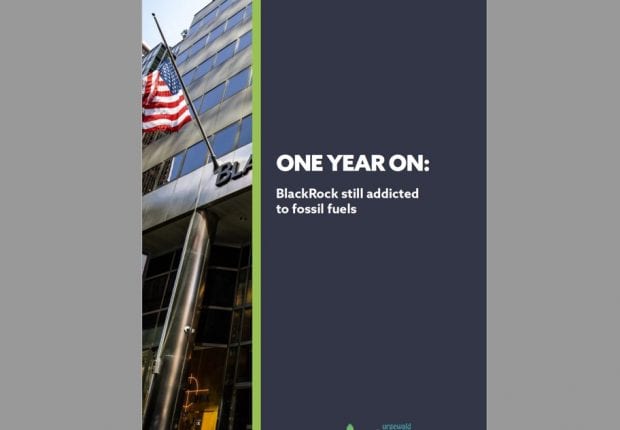
One Year On: BlackRock Still Addicted to Fossil Fuels
One year after BlackRock’s CEO promised sustainability would be at the heart of investment decisions, a report by NGOs Reclaim Finance and Urgewald has revealed that BlackRock remains a massive investor in coal companies, even in those with expansion plans related to coal. The analysis unveils huge gaps in BlackRock’s policy, both in its coal policy and in the complete absence of a policy on other fossil fuels.
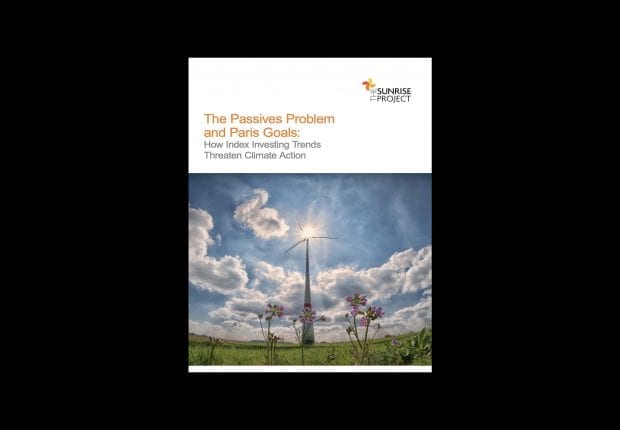
The Passives Problem and Paris Goals: How Index Investing Trends Threaten Climate Action
This paper aims to bring the contours of the passive investing problem into focus. We have used the best available research to summarize big trends, crystallize strategic questions,and point to possible solutions.
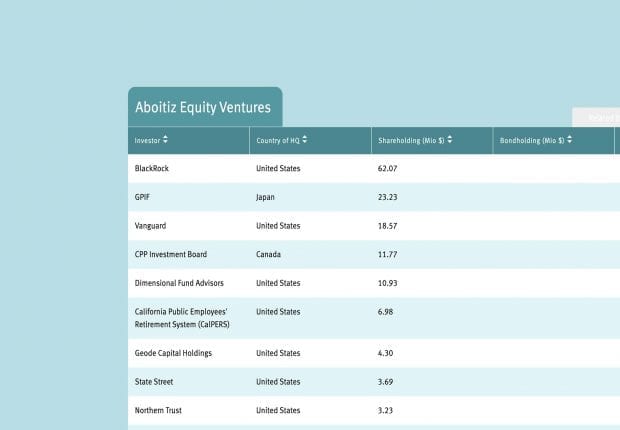
Banks and Investors financing the expansion of the global coal plant fleet
New research reveals the banks and investors financing the expansion of the global coal plant fleet: while the latest IPCC and UN Emissions Gap reports both issue stark warnings on the need for an accelerated phase-out of coal power, the global coal plant fleet is still expanding.
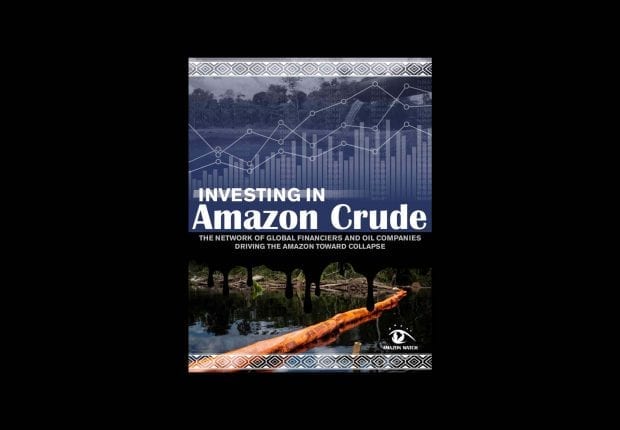
Investing in Amazon Crude
This report outlines in detail the ways that five of the world's most powerful financial institutions are actively contributing to climate change by providing debt and equity financing for crude oil extraction projects in the Amazon. It highlights key examples of on-the-ground Indigenous resistance to oil extraction, while making clear that this extraction in the Amazon is not only terrible for the climate but also a major financial risk for these institutions, given the precedent of legal resistance and forceful intervention from Indigenous communities.
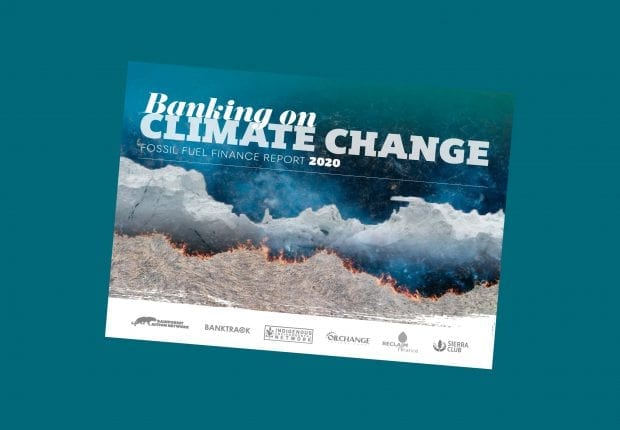
Banking on Climate Change
The latest version of the most comprehensive report on global banks’ fossil fuel financing, Banking on Climate Change 2020, was released on March 18th, 2020. The report reveals that 35 global banks have not only been sustaining but expanding the fossil fuel sector with more than $2.7 trillion in the four years since the Paris Climate Agreement.
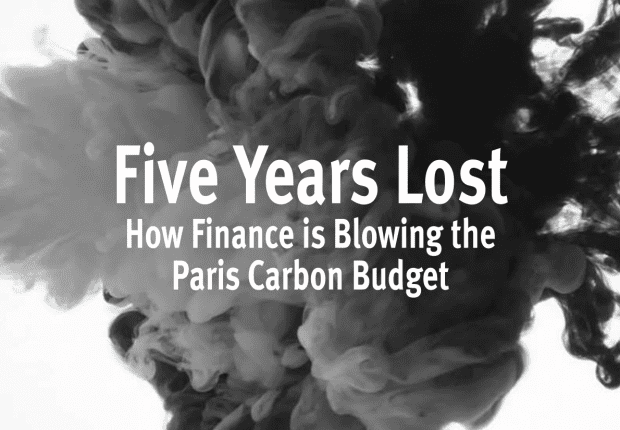
Five Years Lost: How The Finance Industry Is Blowing The Paris Carbon Budget, Reclaim Finance
Two days ahead of the 5th Paris Agreement anniversary, 18 NGOs are releasing a joint report showcasing 12 of the most devastating fossil fuel projects that are currently planned or under development. These expansion projects alone would use up three-quarters of the total remaining carbon budget if we are to have a 66% probability of limiting global warming to 1.5° Celsius.

Global Coal Exit List, Urgewald
Coal is the number one driver of climate change, and phasing out investments in the coal industry is the single most important step financial institutions can take to protect our climate. Effective divestment, however, requires a precise understanding of who the coal industry is. This is where the Global Coal Exit List (GCEL) comes in.
